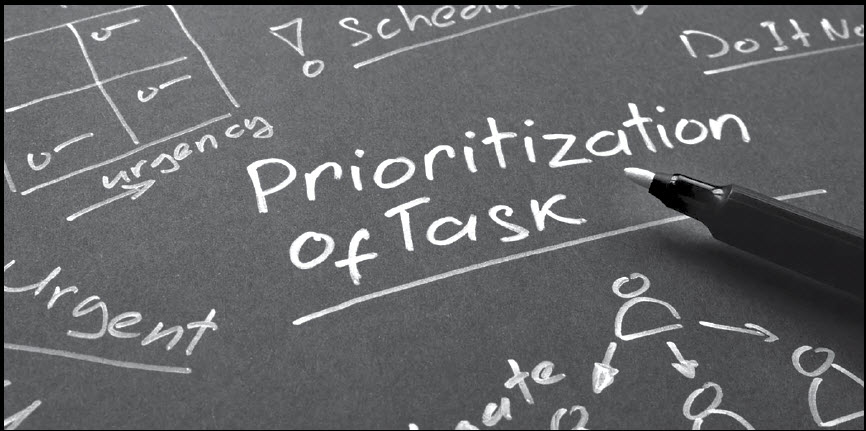 By: Eric Betts
By: Eric Betts
As we advance toward the close of another year, it is important that we begin to reflect upon both our accomplishments as well as our misplaced priorities. Everyone has both, and it is always a work in progress. Oftentimes activity is mistaken for progress when in reality it involves misplaced priorities.
Adeyemo Adedolapo, a blogger and laboratory student of the Great University of Benin, who is also a social media marketer, wrote an interesting article about misplaced priorities. She defines misplaced priorities as those agenda items that should require less priority within a given context. This is all determined by whether the specific individual should be engaged in a particular activity. What is good for one may not necessarily be consistent with the priorities of another.
Adedolapo goes on to warn readers about distractions which cause priorities to be misplaced. “Misplaced priorities are usually caused by distractions which lead to more distractions. This distraction is often difficult to overcome unless you consciously discipline yourself into actually prioritizing what really needs to be prioritized. Stop getting distracted by things that have nothing to do with your goals because you can’t do big things if you are distracted by small things.”
Leadership trainer and author John Maxwell frequently writes upon the topic of priorities and prioritizing. Maxwell writes about the mistake made by leaders who appear to be successful or achieve a level of success. He states that great leader “never gets to the point where they no longer need to prioritize, whether leading a billion-dollar corporation, running a small business, pastoring a church, coaching a team, or leading a small group.” Maxwell suggests that leaders make a great mistake in believing that a greater amount of activity represents a greater amount of productivity. The problem with “busy-bees” is that much of the activity in which they are engaged is out of line with their goals and priorities. For this reason, the important priorities are left half done or undone.
Maxwell also informs his readers that leaders who fail to prioritize do so because it requires forward thinking and navigating what is next, which is often difficult. Additionally, prioritizing is difficult because it forces the leader to evaluate if or how an activity fits within the larger picture of the bigger vision. Moreover, prioritizing is not fully embraced because it requires difficult decisions and may cause others to be disappointed when one is no longer including certain activities in their list of goals or responsibilities. Maxwell says that this part of prioritizing can be “downright painful.”
Maxwell suggests the following as we approach the close of the year:
- Review the previous year’s schedule
- Look at upcoming commitments
- Evaluate family life
- Think about goals
- Look at the big picture of what is being done to make sure that all activity line up with values and priorities
Maxwell advises that leaders engage in personal reflection and should question whether an activity can be done by someone else rather than themselves. He recommends that leaders should be aware of others around them who have the knowledge and ability to perform the same task. They should further observe if there are those in close proximity who have the potential to perform a specific task if trained to do so. Maxwell holds the view that the leader should participate or take on responsibilities that only they have the strength, skill, and knowledge to perform; everything else should be delegated.
He states, “If I’m doing something that’s not necessary, I should eliminate it. If I’m doing something that’s necessary but not required of me personally, I need to delegate it.” Maxwell reminds leaders that simply because one has the ability to perform a task does not necessarily mean they should or that it is right for them. It should be consistent with one’s natural gifting, strength, and overall goals. This alone will create true productivity.
When someone learns to prioritize, they will find that simplifying their schedule leads to greater success than a full plate of activity. Additionally, leaders should enlist the help of their colleagues in order to hold them accountable to stay on track with their priorities. While reflecting and prioritizing at the close of the year, it is highly advised to include some of the things you love. Maxwell, author and leadership expert, helps leaders navigate their priorities and plan accordingly.
By: Eric Betts
Assistant Director, Curtis Coleman Center for Religious Studies and Ethics at Athens State University






